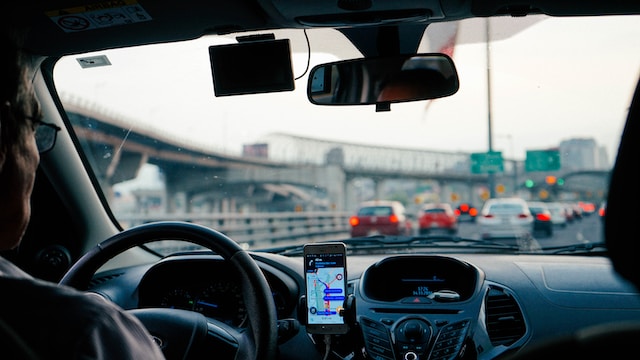If you’re considering driving for Uber, you may be wondering how it will impact your car insurance. After all, you’ll be using your personal vehicle for commercial purposes, which can raise some questions and concerns.
In this article, we’ll explore the ways in which driving for Uber can affect your car insurance, including the potential risks and benefits. We’ll also provide insights into the insurance requirements for Uber drivers, and offer tips on how to ensure that you’re properly covered and protected while on the road.
Whether you’re a current Uber driver or simply considering the option, you’ll gain a deeper understanding of the impact that driving for Uber can have on your car insurance and how to navigate the process effectively. So, if you’re ready to learn more about how driving for Uber can affect your car insurance, let’s dive in and get started!
Table of Contents
Understanding Car Insurance
Car insurance is a type of insurance that covers the cost of damage or injury resulting from an accident involving a vehicle. It is a legal requirement in most states in the US, and it is important for drivers to understand their coverage and how it works.
Car insurance coverage includes various types, such as liability, collision, and comprehensive. Liability coverage is the fundamental type of coverage and is obligatory by law in most states. It covers the expenses of damage or injury to other people or property if you are at fault in an accident.
Collision coverage caters to the expenses of damage to your own vehicle if you are in an accident, regardless of who is at fault. Comprehensive coverage deals with the expenses of damage to your vehicle from non-collision events, such as theft or natural disasters.
When it comes to driving for Uber, it is important to understand how your car insurance coverage may be affected. Most personal car insurance policies do not cover commercial use of a vehicle, which includes driving for Uber. This means that if you are in an accident while driving for Uber, your personal car insurance policy may not cover the cost of damages or injuries.
To ensure that you are fully covered while driving for Uber, you may need to purchase additional insurance coverage. Uber offers its own insurance coverage for drivers, but this coverage only applies while you are actively driving for Uber. It does not provide coverage when you are driving for personal use.
In addition to Uber’s insurance coverage, you may also want to consider purchasing a commercial auto insurance policy. This type of policy is specifically designed for vehicles used for commercial purposes, such as driving for Uber.
It provides more comprehensive coverage than a personal car insurance policy and can help protect you from financial loss in the event of an accident.
Uber’s Insurance Policy
Coverage During App On
When the driver has their Uber app on and is anticipating a ride request, Uber’s insurance policy offers liability coverage for third-party damages up to $50,000 per person, $100,000 per accident, and $25,000 for property damage. Nevertheless, this coverage is applicable only if the driver’s personal insurance policy does not cover the incident.
Coverage During Ride Acceptance
After a driver accepts a ride request, Uber’s insurance policy offers supplementary coverage. This coverage encompasses liability insurance for third-party damages up to $1 million, uninsured/underinsured motorist bodily injury coverage up to $1 million, and contingent comprehensive and collision coverage up to the actual cash value of the vehicle with a $1,000 deductible.
Coverage During Trip
While the passenger is in the car, Uber’s insurance policy offers the most comprehensive coverage. This coverage comprises liability insurance for third-party damages up to $1 million, uninsured/underinsured motorist bodily injury coverage up to $1 million, and contingent comprehensive and collision coverage up to the actual cash value of the vehicle with a $1,000 deductible.
It’s important to note that Uber’s insurance policy only covers the driver and their vehicle while they are actively working for Uber. When the driver is not using the app, their personal insurance policy is responsible for covering any incidents that may occur. Additionally, Uber’s insurance policy may not cover certain types of incidents, such as intentional acts or criminal activity.
Impact of Driving for Uber on Personal Car Insurance
Policy Cancellation Risk
When a policyholder starts driving for Uber, they may face the risk of policy cancellation by their insurance company. This is because personal car insurance policies usually do not cover commercial use, and driving for Uber is classified as commercial use. Insurance companies may view this as a violation of the policy terms and may cancel the policy altogether.
To mitigate this risk, some insurance companies offer ride-sharing insurance policies that provide coverage for drivers who use their personal vehicles for ride-sharing services like Uber. These policies typically cost more than traditional personal car insurance policies, but they provide the necessary coverage and can help drivers avoid policy cancellation.
Increased Premiums
Another impact of driving for Uber on personal car insurance is the potential for increased premiums. Insurance companies view ride-sharing as a higher-risk activity than personal driving, which means that drivers who use their personal vehicles for ride-sharing may face higher premiums.
To offset this cost, some insurance companies offer discounts on ride-sharing insurance policies to Uber drivers who maintain a good driving record and do not have any accidents or claims. It is important for drivers to shop around and compare policies and rates to find the best coverage and pricing for their needs.
Additional Insurance Options for Uber Drivers
As an Uber driver, it is important to consider additional insurance options to ensure you are fully covered while driving passengers. While Uber provides some insurance coverage, it may not be enough in certain situations. Here are two additional insurance options for Uber drivers to consider:
Rideshare Insurance
Rideshare insurance is specifically designed for drivers who work for ride-sharing companies like Uber. This type of insurance provides coverage for both personal and commercial use of your vehicle. Rideshare insurance can help fill the gaps in coverage that may exist between your personal auto insurance policy and Uber’s commercial insurance policy.
Rideshare insurance typically covers:
- Liability coverage for bodily injury and property damage
- Collision coverage for damages to your vehicle
- Comprehensive coverage for non-collision incidents, such as theft or vandalism
- Uninsured/underinsured motorist coverage
Commercial Auto Insurance
Commercial auto insurance is another option for Uber drivers who want to ensure they have sufficient coverage while driving for Uber. This type of insurance is designed for businesses that use vehicles for commercial purposes, such as transporting passengers or goods.
Commercial auto insurance typically covers:
- Liability coverage for bodily injury and property damage
- Collision coverage for damages to your vehicle
- Comprehensive coverage for non-collision incidents, such as theft or vandalism
- Uninsured/underinsured motorist coverage
- Medical payments coverage for injuries sustained by you or your passengers
- Personal injury protection (PIP) coverage, which may be required in some states
It is important to note that commercial auto insurance can be more expensive than personal auto insurance, but it may be necessary for Uber drivers who want to ensure they have sufficient coverage while driving for Uber.
Legal Implications
When drivers sign up to drive for Uber, they are considered independent contractors and not employees. This means that they are responsible for their own taxes and insurance. Drivers are required to have their own personal car insurance policy, but they may also be covered by Uber’s insurance policy while they are driving for the company.
However, there are legal implications to consider when driving for Uber. Drivers should be aware of the laws in their state and city regarding ride-sharing services. Some states and cities have specific regulations that require ride-sharing drivers to have additional insurance coverage.
For instance, in California, ride-sharing drivers must possess a minimum of $50,000 in liability insurance coverage when they are logged into the Uber app but have not yet accepted a ride request. As soon as a ride request is accepted, Uber’s insurance policy becomes effective.
It is important for drivers to understand their insurance coverage and any legal requirements in their area before they begin driving for Uber. Failure to comply with local laws and regulations can result in fines and legal penalties.
In addition, drivers should also be aware of the potential risks associated with driving for Uber. Accidents can happen at any time, and drivers should make sure they have adequate insurance coverage to protect themselves and their passengers. It is also important to follow all traffic laws and drive safely to minimize the risk of accidents.
Conclusion
In conclusion, driving for Uber can potentially affect a driver’s car insurance policy. It is important for drivers to inform their insurance company that they plan to drive for Uber and to ensure that they have the appropriate coverage.
Many insurance companies now offer rideshare insurance policies that cover drivers while they are working for Uber or other ride-sharing companies. These policies typically provide coverage for both personal and commercial use of the vehicle, which is important for drivers who use their car for both personal and work purposes.
It is also important for drivers to be aware of the coverage provided by Uber’s insurance policy. Uber provides liability coverage for their drivers while they are working, but this coverage may not be enough in certain situations. For example, if a driver is involved in an accident while waiting for a ride request, they may not be covered by Uber’s insurance policy.
Overall, it is important for drivers to do their research and understand the insurance implications of driving for Uber. By informing their insurance company and obtaining the appropriate coverage, drivers can protect themselves and their passengers while on the road.







